This week, Congress remained on recess as lawmakers look to finalize funding legislation this month. Elsewhere, Advance CTE submitted formal comments on newly proposed rules for distance education while U.S. Secretary of Education Miguel Cardona continued a back-to-school bus tour throughout the nation.
Lawmakers Returning for Busy Work Period
 Both chambers of Congress remained on recess this week and are expected to return for a new work period early next week. With only a few weeks until the formal start of the 2025 federal fiscal year (FY25), the need to address federal funding for the coming year is expected to be a key priority on Capitol Hill this month.
Both chambers of Congress remained on recess this week and are expected to return for a new work period early next week. With only a few weeks until the formal start of the 2025 federal fiscal year (FY25), the need to address federal funding for the coming year is expected to be a key priority on Capitol Hill this month.
House Speaker Mike Johnson (R-LA) is widely expected to introduce legislation that would extend current FY24 funding levels through the early part of 2025—at the start of a new Congress and Presidential Administration. However, the package is likely to contain other controversial provisions opposed by Congressional Democrats and the Biden Administration who favor a shorter-term extension of federal funding through mid-December. This week, the Biden administration also released a set of funding requests for inclusion in any temporary extension of federal funding, known as a continuing resolution (CR), which is likely to be negotiated by Congress this month. Among these funding requests, known as anomalies, the Biden administration is asking Congress for additional funding for the U.S. Department of Education, particularly for the agency’s Federal Student Aid office— the entity responsible for federal student loan servicing as well as the continued rollout of the Free Application for Federal Student Aid (FAFSA) form.
As these efforts and more continue to unfold, Advance CTE will continue to advocate for a strengthened investment in Career Technical Education (CTE) via the Carl D. Perkins Career and Technical Education Act’s (Perkins V) state grant program.
Advance CTE Responds to Distance Education Rulemaking
Late last month, Advance CTE and the Association for Career and Technical Education (ACTE) formally commented on a recent U.S. Department of Education rulemaking regarding the federal definition for distance education and several other issues related to postsecondary education more broadly. The definition of distance education was last updated in 2020 amid the pandemic, and important improvements were made to the concept of remote learning, including allowing for asynchronous instruction. This allowed postsecondary institutions, including area technical centers (ATCs), to continue to innovate while flexibly supporting the needs of learners. ED’s proposed change would considerably narrow this existing definition, largely disallowing asynchronous instruction, which will limit access to opportunities at these institutions for many learners. Advance CTE and ACTE are calling on ED to reverse course and retain these important flexibilities in the federal regulatory definition of distance education moving forward.
Secretary Cardona Begins Back to School Bus Tour
This week, U.S. Secretary of Education Miguel Cardona kicked off his agency’s 2024 “Back to School” bus tour– an effort intended to showcase how schools are leveraging federal education investments and supporting student achievement. The road trip continued this week with stops in Wisconsin, Illinois, Indiana, Michigan, and Pennsylvania to highlight how school communities are using the Biden-Harris administration’s investment in public education to support learners. Events along the route are intended to emphasize the importance of expanding access to local community colleges, highlight the Department’s teacher recruitment and retention programs, and uplift the Department’s role in supporting youth mental health through school communities.
Rob Young, Communications & Advocacy Associate
Steve Voytek, Policy Advisor


 In the aftermath of the coronavirus pandemic, the strains on the healthcare system continue to be felt, with
In the aftermath of the coronavirus pandemic, the strains on the healthcare system continue to be felt, with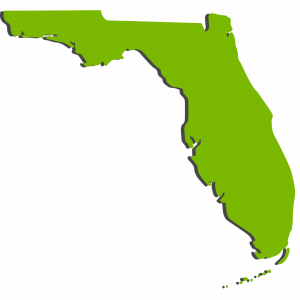 Florida
Florida  In Washington,
In Washington,  Wisconsin
Wisconsin  To see more policy trends and access our policy tracker, check out our
To see more policy trends and access our policy tracker, check out our 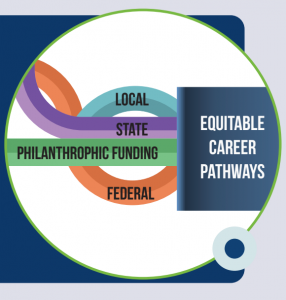 Identify New Funding Streams and Processes.
Identify New Funding Streams and Processes. Please visit
Please visit 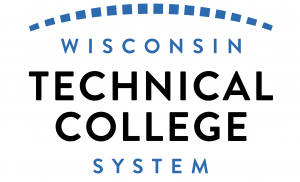 The WisCORE conference facilitates collaboration among WTCS colleges, enabling shared effective DEI strategies and building system-wide capacity for creating more inclusive campuses. By emphasizing the voices and experiences of learners, employees, and community members, the conference ensures that DEI efforts are informed by the perspectives of those most impacted, leading to more equitable and sustainable practices.
The WisCORE conference facilitates collaboration among WTCS colleges, enabling shared effective DEI strategies and building system-wide capacity for creating more inclusive campuses. By emphasizing the voices and experiences of learners, employees, and community members, the conference ensures that DEI efforts are informed by the perspectives of those most impacted, leading to more equitable and sustainable practices.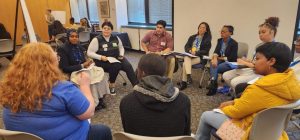
 For additional information about leveraging learner voice, please visit the following pages on the Advance CTE website:
For additional information about leveraging learner voice, please visit the following pages on the Advance CTE website:
 improving college access and completion rates for underserved students; ensuring equitable resources for learning recovery; expanding educational opportunities for justice-impacted individuals to improve outcomes; advancing equity in career and technical education; and increasing mental health resources in underserved communities. In the plan, ED notes that it hopes to improve data transparency with regards to Perkins V data, host a future webinar series on equity in CTE and propose broadened equity indicators as part of its priorities for potential legislative updates to Perkins V in the years ahead. Read the full plan
improving college access and completion rates for underserved students; ensuring equitable resources for learning recovery; expanding educational opportunities for justice-impacted individuals to improve outcomes; advancing equity in career and technical education; and increasing mental health resources in underserved communities. In the plan, ED notes that it hopes to improve data transparency with regards to Perkins V data, host a future webinar series on equity in CTE and propose broadened equity indicators as part of its priorities for potential legislative updates to Perkins V in the years ahead. Read the full plan 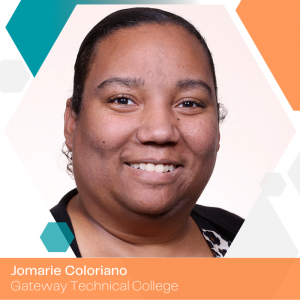 Tell me more about your journey to the Fellowship.
Tell me more about your journey to the Fellowship.


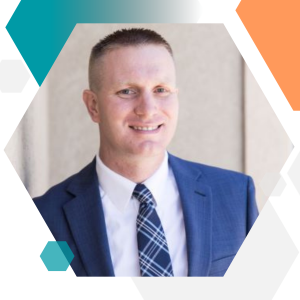
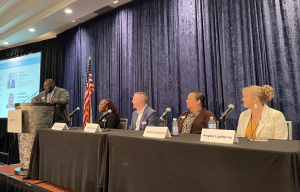 Fellows were also asked to share the key event or events that reinforced their decision to apply to the Fellowship, in other words – when they knew they made the right decision. Dr. Gardner shared that in CTE she rarely has an opportunity to work with or collaborate with other leaders of color across the nation and view the entire landscape of leadership possibilities in postsecondary CTE. The Fellowship offered an opportunity to build a network consisting of her peers, guest speakers invited to the Fellowship workshop and most importantly her coach whom she felt she was perfectly matched with based on their commonalities and interests. She recognized the level of thought the Advance CTE staff dedicated to finding the right mentor for each of the Fellows. Caleb discussed being paired with a postsecondary administrator with an automotive background and how the monthly coaching meetings inspired him to begin seeking the director position he currently holds at his institution.
Fellows were also asked to share the key event or events that reinforced their decision to apply to the Fellowship, in other words – when they knew they made the right decision. Dr. Gardner shared that in CTE she rarely has an opportunity to work with or collaborate with other leaders of color across the nation and view the entire landscape of leadership possibilities in postsecondary CTE. The Fellowship offered an opportunity to build a network consisting of her peers, guest speakers invited to the Fellowship workshop and most importantly her coach whom she felt she was perfectly matched with based on their commonalities and interests. She recognized the level of thought the Advance CTE staff dedicated to finding the right mentor for each of the Fellows. Caleb discussed being paired with a postsecondary administrator with an automotive background and how the monthly coaching meetings inspired him to begin seeking the director position he currently holds at his institution. 